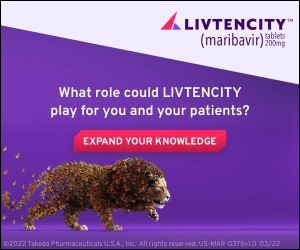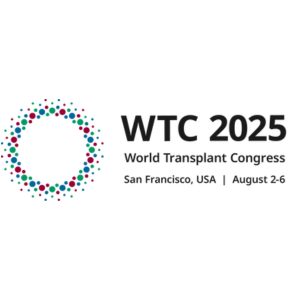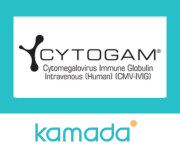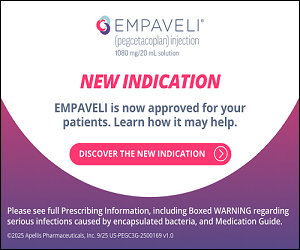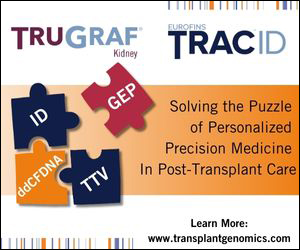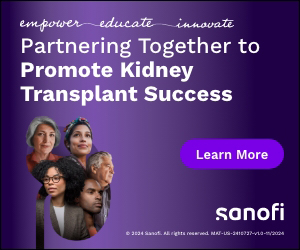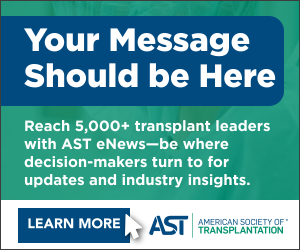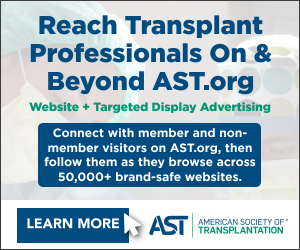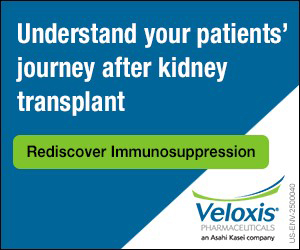 |
|||||||||||||||||||||||||||||||||||||||||||||||||||||||||||||||||||||
| Past Issues | Subscribe | Advertise | myAST.org | |||||||||||||||||||||||||||||||||||||||||||||||||||||||||||||||||||||
|
Important Dates
AST News
Spread the Word: AST Student Membership - Only $29!
Students can join the AST for just $29 now through June 30! This limited-time offer is a great opportunity to connect with leaders in the field, access valuable educational resources, and explore a future in transplantation.
Know a student who might be interested? Please share this with your network!
Medical Directors Forum
Join your colleagues in sharing innovative approaches to clinical practice, gaining insight into transplant finance, and expanding your leadership skills at the AST Medical Directors Forum.
Fellows Symposium: Registration Open
Registration for the Fellows Symposium on Transplantation is now open! This comprehensive program is designed for clinical fellows and residents, surgical fellows, research fellows, pharmacists, and other trainees planning a career in transplantation medicine, surgery, or research.
Fellows, residents, trainees, and pharmacists who meet the eligibility criteria can apply for a travel grant. Fellows who are ineligible for travel grants may still register as general attendees. Medical students are also welcome to attend. The deadline to apply for a travel grant is July 1. Please encourage your colleagues to apply. Registration Open for International Transplantation Science 2025
On behalf of the AST, the European Society for Organ Transplantation (ESOT), and The Transplantation Society (TTS), we are excited to announce that registration is officially open for the International Transplantation Science Meeting 2025.
ITS 2025 marks the fourth tri-society event in this global collaboration, bringing together top experts, early-career researchers, and transplant professionals worldwide. This meeting offers an exciting forum to explore cutting-edge basic and translational science in and beyond the field of transplantation.
New Resource: AST Mentorship Program
We’re excited to introduce the AST Mentorship Program, a new member benefit designed to foster meaningful, career-shaping connections across the transplant community.
Whether you're looking to give back as a mentor or grow as a mentee, this program supports all transplant professionals — including students and trainees — with a flexible structure that fits your schedule and preferred way to connect: remote, hybrid, or in-person.
We Want to Hear From You!
Help shape AST’s work by taking our quick, anonymous member survey. Your feedback will guide our priorities and strengthen support for the transplant community. It only takes a few minutes — and you could win one of ten $50 Amazon gift cards! The deadline to complete the survey is June 22.
Explore the New Partner Connect Resource Library
The AST is pleased to share the launch of the Partner Connect Resource Library — a curated collection designed to support transplant professionals across specialties. Made possible through the support of our sponsors, this library is accessible to all AST members. Inside, you’ll find:
• Studies – Stay up to date with clinical research and insights
• Whitepapers – Learn from expert-driven content • Webinars – Watch sessions led by trusted transplant professionals Partner Connect is continually evolving to offer AST members meaningful tools for professional growth and collaboration. Log in today and start exploring!
Contact Congress About the Living Donor Protection Act
The Living Donor Protection Act (LDPA) has been reintroduced in Congress, and we need your support. This bipartisan legislation would prohibit insurance discrimination against living organ donors, ensure they can use FMLA leave during recovery, and require updated educational resources to promote donation.
Take action now — urge your lawmakers to support the LDPA.
Make Your Voice Heard: Protect Transplant Research Funding
Funding cuts to the National Institutes of Health (NIH) put critical transplant research at risk. NIH-funded studies have driven advancements in transplantation, improving patient outcomes and paving the way for innovations like new immunosuppressants, immune tolerance strategies, and even organ regeneration. Without this support, progress in the field could slow, affecting countless patients and families.
We need your help to ensure that transplant research remains a priority. Use our advocacy page to contact your members of Congress and urge them to protect NIH funding. Together, we can make a difference. Take action today!
AST Public Policy Form
The AST developed a survey aimed at soliciting your perspectives on legislative and regulatory issues that significantly influence both patient care and professional practice. Our goal is to establish a platform for our membership to share their invaluable ideas and perspectives and actively engage with the Public Policy Committee and AST leadership. We look forward to your input as we navigate the dynamics of our ever-evolving landscape of transplant care and practice.
Upcoming Education
Key Articles in Transplantation
Pancreas transplant outcomes in patients with human immunodeficiency virus infection
Source: American Journal of Transplantation
There is limited information on access and outcomes of patients living with human immunodeficiency virus (PLWH) who have undergone pancreas transplantation. We conducted a retrospective cohort study analyzing data from the United Network for Organ Sharing from July 1, 2001, to June 30, 2021. Recipients of pancreas transplant were stratified by HIV serostatus. Graft and patient survival were analyzed using Kaplan-Meier product limit estimates. Multivariable Cox proportional hazard models were generated to identify factors associated with increased mortality or graft loss. Fifty PLWH and 16 380 patients without HIV underwent pancreas (with kidney) transplantation. Hepatitis C Nucleic Acid Test Positive (NAT+) Solid Organ Consent Rates Are Highest in Patients Listed for Liver Transplant and With an English Language Preference
Source: onlinelibrary.wiley.com
Transplantation of hepatitis C virus (HCV) nucleic acid (NAT) positive organs is associated with shorter time to transplant and decreased risk of death on the waiting list. Treatment for HCV post-transplant is well-tolerated, successful, and leads to similar transplant outcomes to patients transplanted with HCV NAT− organs. Despite these outcomes, not all patients consent to receive HCV NAT+ organs, and factors associated with consent are not well-known.
Renal Cell Carcinoma in Native Kidney After Kidney Transplantation: A Multicenter Case Control Study With a Focus on Screening Strategy
Source: frontiers Publishing Partnerships
Renal cell carcinoma (RCC) of native kidney is more prevalent after kidney transplantation than in the general population. Risk factors and the value of screening remain unclear. We conducted a multicenter case-control study in kidney transplant recipients transplanted between 1989 and 2017. All patients with RCC were included, and two controls were matched to each case. Two centers performed annual screening (AnS group) and the other two had other strategies (OS group). A total of 125 cancers were found in 113 patients. The majority of cancers were stage T1-T2 (92.0%), 1.6% had metastasis at diagnosis and ten (9.0%) had recurrence after nephrectomy.
|
|||||||||||||||||||||||||||||||||||||||||||||||||||||||||||||||||||||
